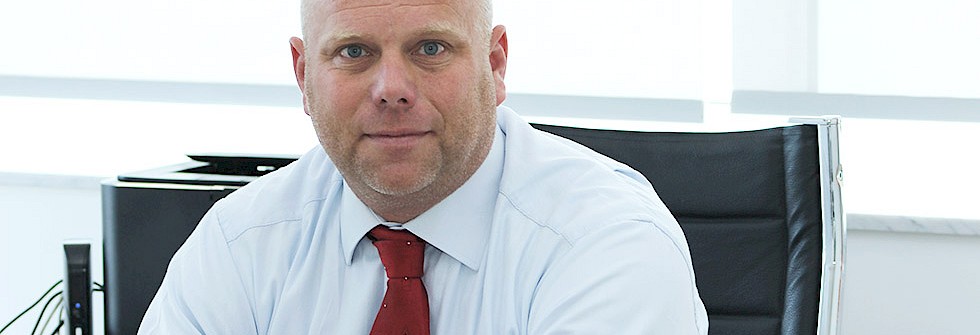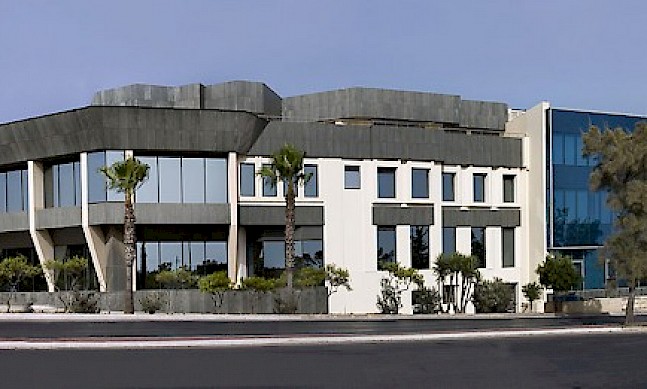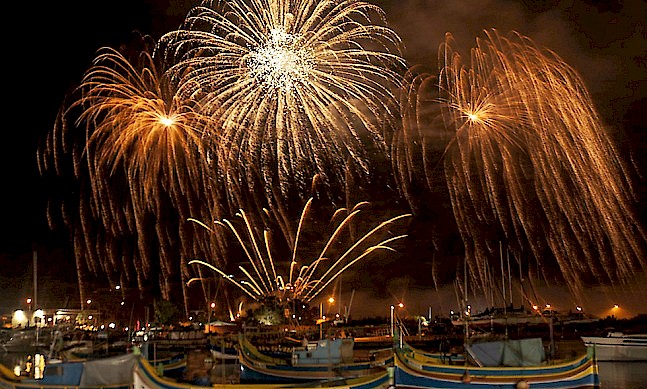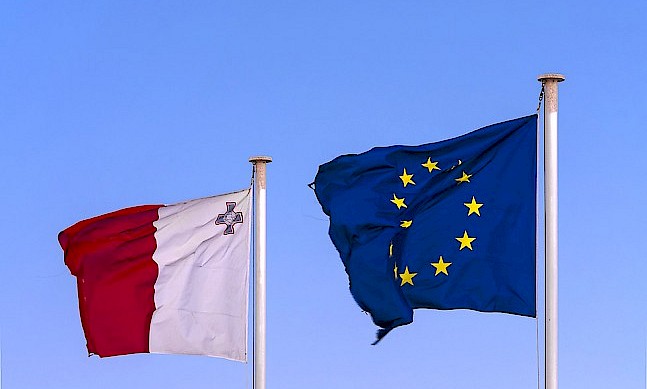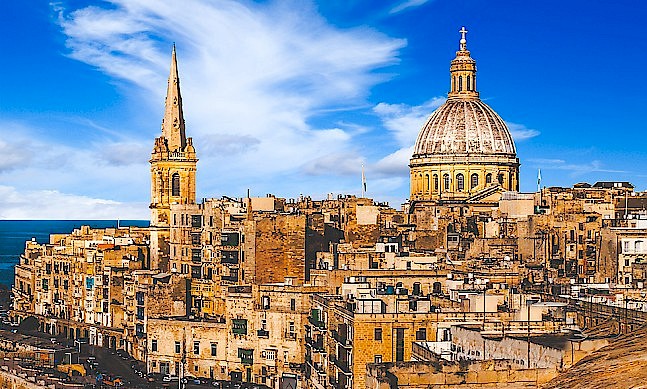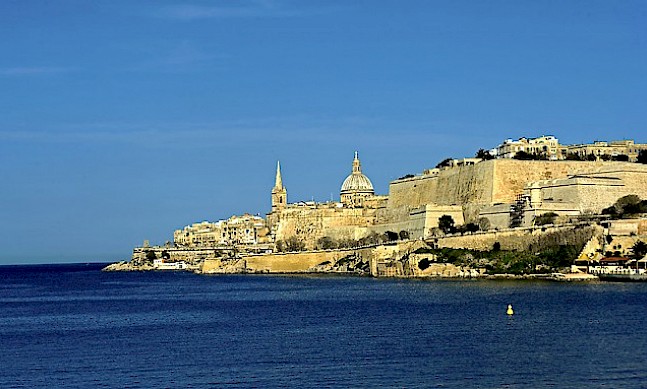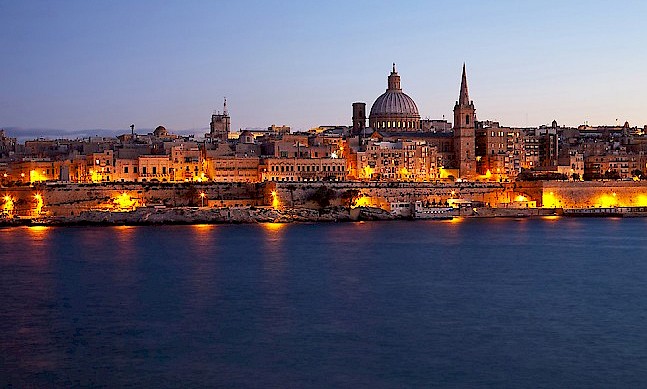Between the world’s oil fields and the users of derivative products, independent terminal networks like Oiltanking perform vital connecting services. Independent storage terminals are not owned by the clients they serve and do not own any of the products they handle. Oiltanking has become one of the world’s largest companies in this competitive field, and first set up in Malta in 1992. Since then, it has become a Maltese warehouse for oil, offering pipeline and berthing facilities and servicing a multitude of companies. Sonke Stein, the Malta operation’s CEO, spoke to The Report Company about the company’s activities
The Report Company: What has been your experience of Malta and its logistics sector?
Sönke Stein: When I first came to Malta it was as a student. I’m a shipbroker by profession and we came to visit the shipping nation of Malta and its dry docks. That was my first connection with Oiltanking. This terminal had just opened, and Oiltanking did its investment together with the Malta Freeport Corporation as a 70:30 joint venture. This terminal was conceived as a bunkering terminal, mainly serving the vessels calling on the Freeport. Today, it has become far more than a bunkering terminal.
We have gone from a small, very specific local entity to a major trading hub in the Mediterranean today. People are trading products in and around Malta, and Malta being very central, it makes a lot of sense for a lot of traders to be here. If you look at the bunkering sector itself, this has evolved in time, and there is a huge amount of traffic passing by that can use the service that Malta has to offer. This is a sector that has developed tremendously. In the initial stages, we never had any barges. It never really took off, the volume wasn’t there, the Freeport wasn’t busy. Now the Freeport has taken off and there is a lot of bunkering happening in the Freeport itself.
The advantage of Malta is that for a lot of oil products, it can be the first port of entry to the EU. Everything can be done in Malta in the proper way; they stick to the rules.
TRC: What needs to be done to make Malta a centre of excellence in the sector?
SS: I think it has already developed a lot in this direction. In 2007, during the early days of the EU membership, Malta managed to implement all the rules that were imposed on it by the EU. That’s not easy because the EU legislation is pretty complex.
TRC: What has been the most important milestone for Oiltanking Malta?
SS: In Malta, the biggest milestone was the most recent extension that we did,
because that included the addition of another jetty, and without that jetty we would have not had the physical space for the tank storage. This was completed in 2007.
TRC: What is the composition of your client portfolio in Malta?
SS: We have a very wide cross-section, from refineries to major oil traders. All of our own tanks are rented out to major players, because we always look for long-term commitments and the smaller players are not in the position to do that, because they do not have the markets. We are not a low-cost operator, so people have to pay for the professional and world-class service we offer, and we can proudly say that we are setting the benchmark for standards on the island.
“We have gone from a small, very specific local entity to a major trading hub in the Mediterranean today.”Tweet This
TRC: How do you market your services abroad?
SS: We are part of the Oiltanking group and we have terminals in Amsterdam, in Ghent, in Antwerp, and most of these clients know us because they do business in another of our terminals elsewhere. If you look at the composition of our clients, it has not majorly changed over the last 10 years, so everyone who took a tank 10 years ago, still holds a tank here today.
TRC: Do you see scope for further joint ventures?
SS: This was a joint venture with the Maltese government through Malta Freeport Corporation. We in 2007 sold 45 percent of the company to a strategic investor called 3i, where Malta Freeport Corporation gave up the 30 percent holding they had as part of EU rules, and we sold 15 percent of our holding. This means that we already have a joint venture partner on a global basis. They also hold investments in our facilities in Singapore, in Amsterdam, and most recently in Europe, they have acquired shares in our Ghent and Terneuzen terminals.
This frees up some working capital and some equity that we can invest somewhere else.
TRC: What is your growth strategy?
SS: I would call the Oiltanking Malta strategy one of controlled growth. We don’t need to grow much further, we don’t want to grow much further, and we can’t grow much further because we have no more jetties available, so we have to look at how to grow within the footprint that we have. We have to see how we can optimise the service that we can give to our clients, which basically means continuously investing in upgrading our facilities to make them more flexible and more user-friendly for our own operators so we can get more things done.
We are investing a lot of money in automating things, and that’s very nice, but at the same time we need to do things with the free time that this creates, so we are trying to find a way that we can maintain and improve the service level that we give to our clients. There is competition growing in the Mediterranean in the sector; we see that other people are also building capacity, so to keep our competitive advantage we have to invest.
The facility is ageing; it’s a 20-year-old terminal and we are onto the first phase of replacement and rebuild actually because the lifespan is slowly coming to an end. For example, we are replacing the bottoms of the tanks and large sections of our pipeline network.
“Our slogan is ‘Do the common, uncommonly well’, and that is what we as a company are all about.”Tweet This
TRC: How would you define the competitive advantages of the company?
SS: The first is definitely our location. We have a very flexible configuration in the way our facility is built so we can change products, we can offer blending services, leasing can be done by other people as well, but the most important thing is how efficient we are because time is money. What is important are flow rates, pumping rates, and the time it takes to bring a vessel into port or out of the port.
Another one is that we are completely independent; we don’t own any oil, we are not involved in the trading of our clients, and everybody can work in the same place. It is first-come, first-served. These are relatively simple business ethics that you have to maintain.
TRC: How would you define your approach to safety and security?
SS: The Oiltanking group has a health, safety, security and environment policy that applies to all of our installations around the world. It’s a global rulebook which you have to comply with. These books are adapted to local circumstances and to local legislation. We also have our own building standards and contract specifications to which we build on a global basis, so these are normally more stringent than applicable local law or international standards.
We are proactive rather than reactive. In this business you can’t be reactive. We comply with all of the regulations in Malta and within the EU. You can’t compromise on safety. It takes 20 years to build a reputation, but 20 seconds to lose it.
We have just lately invested millions in new fire-fighting pumps for example, and we invest many millions every year just to maintain the integrity of the plant itself. That is non-revenue generating investment, so that is the cost to maintain the business and to keep our good reputation.
TRC: How would you like Oiltanking to be perceived by potential clients or investors?
SS: We have a slogan, which I have always liked. It is: ‘Do the common, uncommonly well’. That is what we as a company are all about. We are not a company that seeks a high profile. We offer relatively simple services; it’s the warehousing of oil products. There is a high value that we store, so we have to make sure that if a client gives us their precious goods, that they get them back in the right quality and quantity. For that, you don’t have to make big announcements or statements.
That is for us why we have been around for 25 years, and this is really the heart and soul of our business: we find solutions which are tailor-made to the customers’ requirements; we look at each client independently and separately, and we still try to make sure that everybody is being treated fairly. We are not a high profile company, and we don’t want to be one. We sit here in the corner, we do what we have to do, and if somebody needs help, we will give it. We are pretty unique in what we do and we are in a very lucky position.


